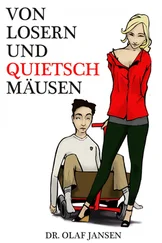Olaf Stapledon - Odd John
Здесь есть возможность читать онлайн «Olaf Stapledon - Odd John» весь текст электронной книги совершенно бесплатно (целиком полную версию без сокращений). В некоторых случаях можно слушать аудио, скачать через торрент в формате fb2 и присутствует краткое содержание. Город: London, Год выпуска: 2012, ISBN: 2012, Издательство: Hachette UK, Жанр: Фантастика и фэнтези, на английском языке. Описание произведения, (предисловие) а так же отзывы посетителей доступны на портале библиотеки ЛибКат.
- Название:Odd John
- Автор:
- Издательство:Hachette UK
- Жанр:
- Год:2012
- Город:London
- ISBN:9780450038570
- Рейтинг книги:5 / 5. Голосов: 1
-
Избранное:Добавить в избранное
- Отзывы:
-
Ваша оценка:
- 100
- 1
- 2
- 3
- 4
- 5
Odd John: краткое содержание, описание и аннотация
Предлагаем к чтению аннотацию, описание, краткое содержание или предисловие (зависит от того, что написал сам автор книги «Odd John»). Если вы не нашли необходимую информацию о книге — напишите в комментариях, мы постараемся отыскать её.
Odd John — читать онлайн бесплатно полную книгу (весь текст) целиком
Ниже представлен текст книги, разбитый по страницам. Система сохранения места последней прочитанной страницы, позволяет с удобством читать онлайн бесплатно книгу «Odd John», без необходимости каждый раз заново искать на чём Вы остановились. Поставьте закладку, и сможете в любой момент перейти на страницу, на которой закончили чтение.
Интервал:
Закладка:
This tragedy evidently had a profound effect on her still juvenile mind. The finality of the deed bred in her a new tenderness and respect for the subhuman beings who surrounded her. Somehow this death lessened the distance between her and them. Though her passion for self-expression soon returned, and though she sometimes indulged it ruthlessly, it was tempered by the recollection that she had killed the one being in the world who for a whole month had seemed to her superior to herself.
For a few years after the death of the artist Jacqueline lived in great poverty on savings which she had accumulated in her association with the merchant. She tried to make a name for herself as a writer, under a masculine pseudonym; but the stuff which she produced was too remote to be appreciated, and she could not bring herself to write in a different vein. When she was in her forties, and still in the first flush of maturity, her obsessive craving for luxury and power returned with such insistence that, in a panic, she became a nun. She did not believe any of the explicit doctrines of the Church; but she made up her mind to pay lip service to all its superstitions for the sake of its flicker of genuine and corporate religious experience, which, she felt, she needed for the strengthening of her better nature. Her presence in the nunnery, however, very soon caused such an upheaval that the institution was finally disbanded, and Jacqueline, with bitter laughter in her heart, returned to her original calling.
But to her own surprise prostitution now afforded her something more than the means to wealth and power. Her experience in the ionnery had not been wholly barren. She had learned a good deal about the spiritual cravings of the subhuman kind; and this knowledge she now put to good use. Her motive in returning to prostitution had been purely selfregarding, but she soon discovered that the more human of her clients were suffering from an unconscious need for something more than carnal satisfaction. And she found exaltation in ministering to this essentially spiritual need. Carnal satisfaction she gave ungrudgingly. Her own initial distaste at intercourse with beings of a lowly order gave way to delight in her new office. Many a man whose real need was not merely copulation but intimacy with a sensitive yet fearless woman, many who needed moreover help in the seemingly hopeless task of “coming to terms with the universe,” found in Jacqueline a well of strength. As her reputation grew, ever greater demands were made on her. Hoping to save herself from a breakdown, she chose disciples, young women who were ready to live her life and give themselves as she gave herself. Some of them were partially successful, but none could do as she had done. The strain increased until at last she fell seriously ill.
When she recovered, her old self-seeking passion was once more uppermost. Using all her prowess she fought her way up the social ladder of Europe, till, at fifty-seven and on the threshold of full maturity, she married a Russian prince. She did so knowing that he was a worthless creature and a halfwit, even by normal standards. So skilfully did she play her cards during the next fifteen years that she had a good prospect of setting him on the throne. Increasing disgust and horror, however, flung her into another mental disorder. From this she emerged once more her true self. She cut adrift, disguised herself, and fled back to Paris to carry on her old profession. Occasionally she met one or other of her former clients, now well advanced in years. But as she herself had retained her youthful appearance, and indeed seemed to have the full flower of womanhood still ahead of her, she easily persuaded them that she was the former Jacqueline’s young niece.
All this while she had never had a child, never conceived. In her early years she had taken precaution to avoid such a disaster; but in maturity, though she had felt no craving for motherhood, she had been less reluctant to risk it, and less cautious. As the decades passed and her remaining caution dwindled out, she came to suspect that she was sterile, and in the end she ceased to take any precautions at all. On her return from Russia an obscure sense that in missing motherhood she had missed a valuable experience developed into a definite hunger to have a baby of her own.
Not a few of her clients had tried to persuade her to accept marriage. Hitherto she had laughed at these suitors, but when she had passed her eightieth year, she began to be seriously attracted by the prospect of a spell of quiet married life. Among her clients was a young Parisian lawyer, Jean Cazé. Whether he was in fact the father of her child she did not know; but when, to her amazement, she found that she had conceived, she singled him out as a suitable husband. He, it so happened, had never thought of marrying her; but when she had slipped the idea into his mind, he pressed her ardently, overcame her feigned reluctance and carried her off in pride. After eleven months of pregnancy she bore her daughter, and very nearly died in the ordeal. Four years of maternal duties and of companionship with the faithful Gaze were enough for her. Jean, she knew, would treasure the infant; and indeed he did, to the extent of spoiling her for life. Jacqueline fled not only from Paris but from France, and started all over again in Dresden.
Throughout the last two-thirds of the nineteenth century Jacqueline appears to have had alternating spells of exalted prostitution and marriage. She counted among her husbands, she said, a British ambassador, a famous writer, and a West African negro who was a private in the French colonial army. Never again did she conceive. Probably John was right in surmising that she had the power of preventing conception by an act of volition, though she had no idea how she exercised this power.
Since the close of the nineteenth century Jacqueline had not indulged in marriage. She had preferred to carry on her profession, because of her “great affection for the dear children,” by which she meant her clients. Hers must have been a strange life. Of course she gave herself for money, like any member of her profession, or of any other profession. Nevertheless, her heart was in her work, and she chose her clients, not according to their power to pay, but according to their needs and their capacity to benefit by her ministrations. She seems to have combined in her person the functions of harlot, psycho-analyst and priest.
During the war of 1914-18 she was drawn into overstraining herself once more. So many tragic cases came her way. And after the war, being wholly without national prejudices, she moved to Germany, where the need was greater. It was in Germany, in 1925, that she had once more collapsed, and was forced to spend a year in a “mental home.” When we met her she was again established in Paris, and again at work.
On the day after our meeting in the café John had left me to amuse myself as best I could while he visited Jacqueline. He stayed away four days, and when he returned he was haggard and obviously in great distress. Not till long afterwards could he bring himself to tell the cause of his misery, and then he said only, “She’s glorious, and hurt, and I can’t help her, and she won’t help me. She was terribly kind and sweet to me. Said she had never met any one like me, wished we’d met a hundred years ago. She says my work is going to be great. But really she thinks it’s just schoolboy adventure, no more.”
CHAPTER XVI
ADLAN
JOHN continued his search. I accompanied him. I shall not at this stage describe the few suitable supernormal youngsters whom he discovered and persuaded to prepare themselves for the great adventure. There was a young girl in Marseilles, an older girl in Moscow, a boy in Finland, a girl in Sweden, another in Hungary, and a young man in Turkey. Save for these, John found nothing but lunatics, cripples, invalids, and inveterate old vagabonds in whom the superior mentality had been hopelessly distorted by contact with the normal species.
Читать дальшеИнтервал:
Закладка:
Похожие книги на «Odd John»
Представляем Вашему вниманию похожие книги на «Odd John» списком для выбора. Мы отобрали схожую по названию и смыслу литературу в надежде предоставить читателям больше вариантов отыскать новые, интересные, ещё непрочитанные произведения.
Обсуждение, отзывы о книге «Odd John» и просто собственные мнения читателей. Оставьте ваши комментарии, напишите, что Вы думаете о произведении, его смысле или главных героях. Укажите что конкретно понравилось, а что нет, и почему Вы так считаете.












